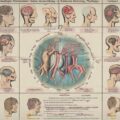What is Environmental Psychology?
Environmental psychology is the study of the interrelationship between human behavior and our surroundings – both natural and built environments. It aims to understand how our surroundings impact our health, wellbeing, and behavior so that we can design built spaces that nurture human flourishing.
The Purpose of Environmental Psychology
The purpose of environmental psychology is to create environments that promote mental, emotional and even spiritual wellbeing. Researchers study how elements like natural light, access to nature, color palettes and spatial layout affect mood, stress levels, sociability, focus and more. The goal is to translate these findings into architecture, interior design, urban planning and policy making that supports human thriving.
Top 5 Environmental Psychology Books
- Biophilic Design: The Theory, Science and Practice of Bringing Buildings to Life by Stephen R. Kellert
- The Experience of Nature: A Psychological Perspective by Rachel Kaplan
- Therapeutic Landscapes: An Evidence-Based Approach to Designing Healing Gardens and Restorative Outdoor Spaces by Clare Cooper Marcus
- Ecotherapy: Healing with Nature in Mind edited by Linda Buzzell and Craig Chalquist
- Design for Human Wellbeing: Architecture and the Senses by Justyna Karakiewicz
Frequently Asked Questions
What is an example of environmental psychology?
Studying how access to views of nature from hospital beds speeds up patient recovery times is an example of environmental psychology research. Findings from such studies can then inform hospital design to incorporate more natural elements.
How can environmental psychology be applied?
Environmental psychology findings can transform many domains like architecture, interior design, urban planning, workplace design, parks and recreation planning, education environments and even consumer product design to support wellness.
What are some environmental psychology topics?
Some topics include nature’s impact on stress; effects of lighting, color and spatial layout on emotions; optimal workspace design; restorative environments; sensory stimulation and information processing and nature-based wellness interventions.
What jobs involve environmental psychology?
Careers utilizing environmental psychology include urban designer, architectural consultant, workspace designer, sensory design specialist, healing garden designer, ecotherapist, policy advisor and academic researcher.
What is the environmental design research association?
EDRA is an international, interdisciplinary organization working to advance and disseminate environmental design research relating to the interrelationships between people and their built and natural surroundings.









